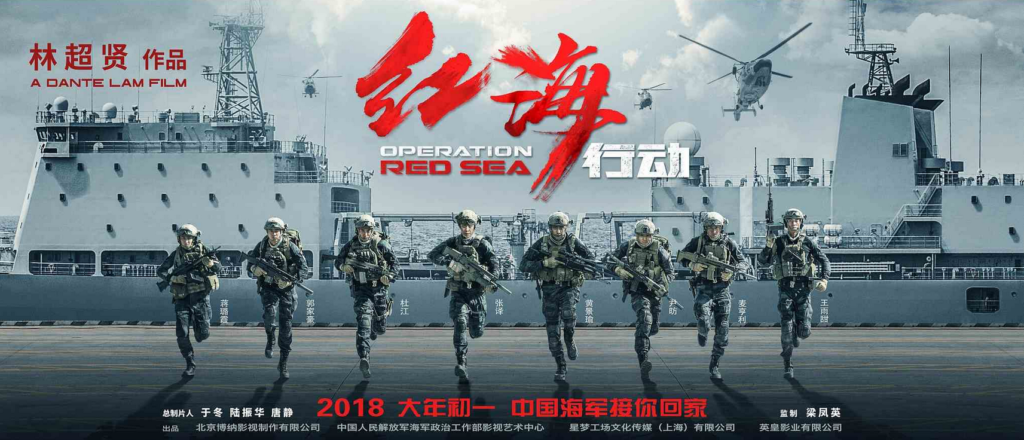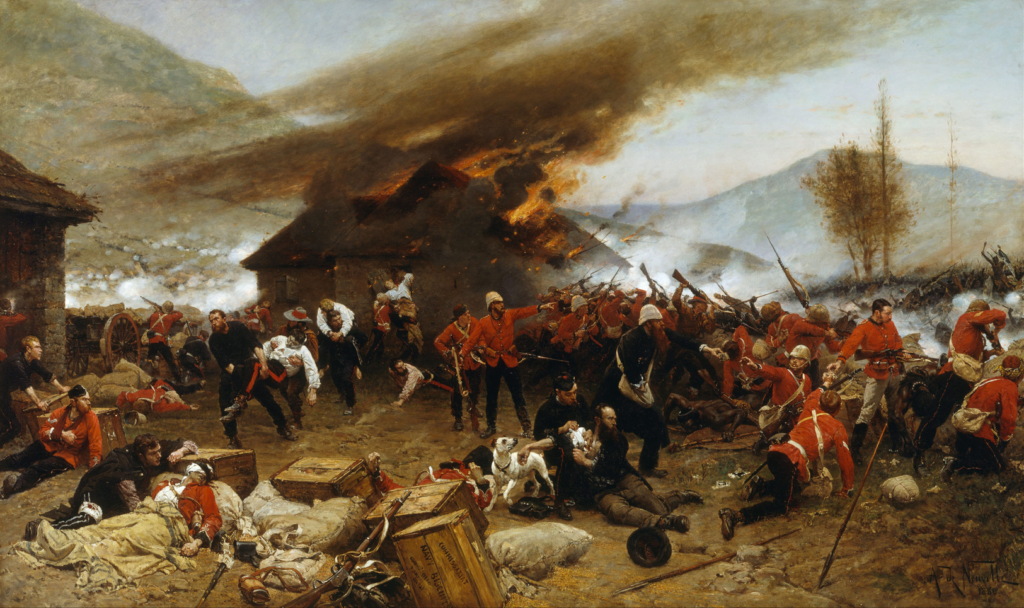Editor’s Note: Last Redoubt introduces us to a new entertainment option: Chinese movies. It was originally posted at his place.
If you told me 10 years ago that I’d prefer watching outright Chinese commie propaganda more than most of what comes out of Hollywood, I’d have called you nuts.
While I’d previously seen Wandering Earth and a few other movies originated out of China, and you could see the worldview/assumptions working in the background, it wasn’t until watching Operation Red Sea – filmed entirely in cooperation with the PLA Navy as a “Chinese Navy Seals go to the Shores of Tripoli” – that I’d watched such an obvious and forthright propaganda film to push Chinese interests, attitudes, and aims.
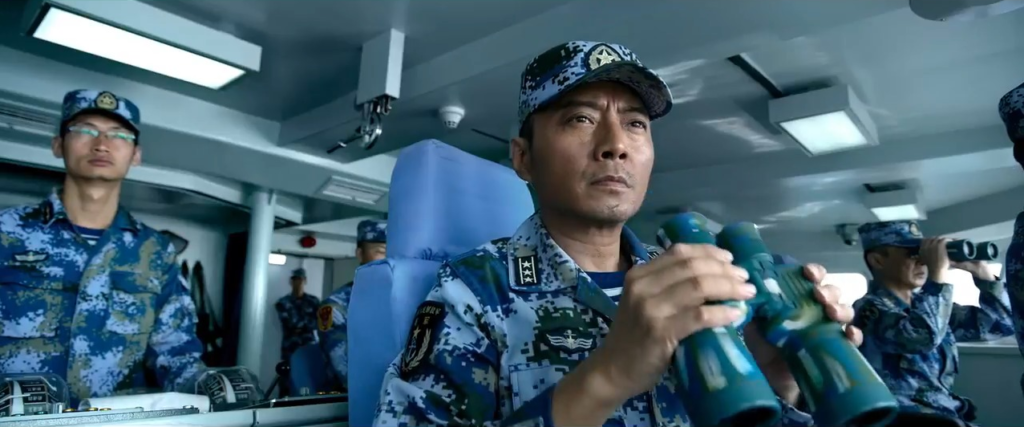
The story, very loosely based around an actual incident in Yemen during the Yemeni civil war, centers around a commando team assigned to a destroyer or similar surface combatant. Starting with a tricky assault to seize a cargo ship from pirates near Somali waters, the ship and team are then diverted to evacuate Chinese citizens from not-Yemen. After a couple tense urban firefights, they are redirected to rescue a group of civilians taken hostage, where they take significant losses from a mortar ambush, but press on and rescue the Chinese hostages. Finally, the remaining team members wingsuit in to stop a transfer of nuclear materials.
Is it paint-by-numbers? Yes, if you gave such a “paint by numbers” set to a skilled illustrator or artist. The camera work, story beats, and archetypes are spot on. The complications are largely of the expected variety, but the sincerity of the movie and its main team of protagonists are sold very well, and the characters are not betrayed.
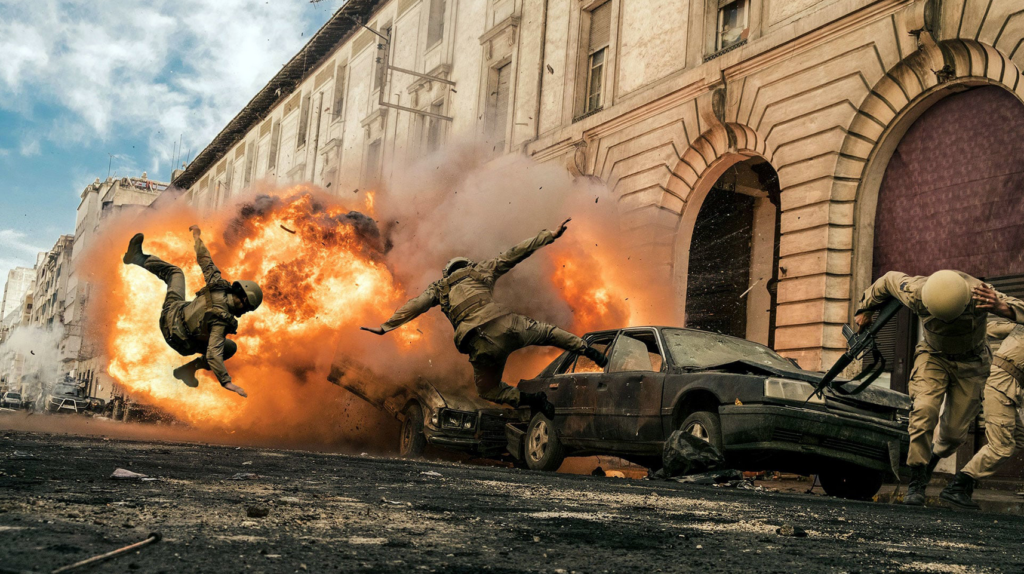
It’s worth a watch.
As to my one-line pitch, I wasn’t kidding. Much like Navy Seals from 1990 showed off a broad variety of missions for the team as propaganda to sell people on how awesome the SEALS are, this does too. The Tripoli bit is from the overall mission profile. Both are in the Middle East. Where one was explicitly aimed at squelching Muslim pirates capturing US sailors, the other similarly involved rescuing Chinese citizens from Muslim terrorists. While several recent “modern” war movies have been pretty good – 13 Hours, for example – the degree of “Make America Great” has been at a low ebb of late, much less “America is Awesome.” In Red Sea, you get to see a commando team and navy ship unapologetically, bravely, stoically, and competently serving Chinese interests in international waters and foreign lands.
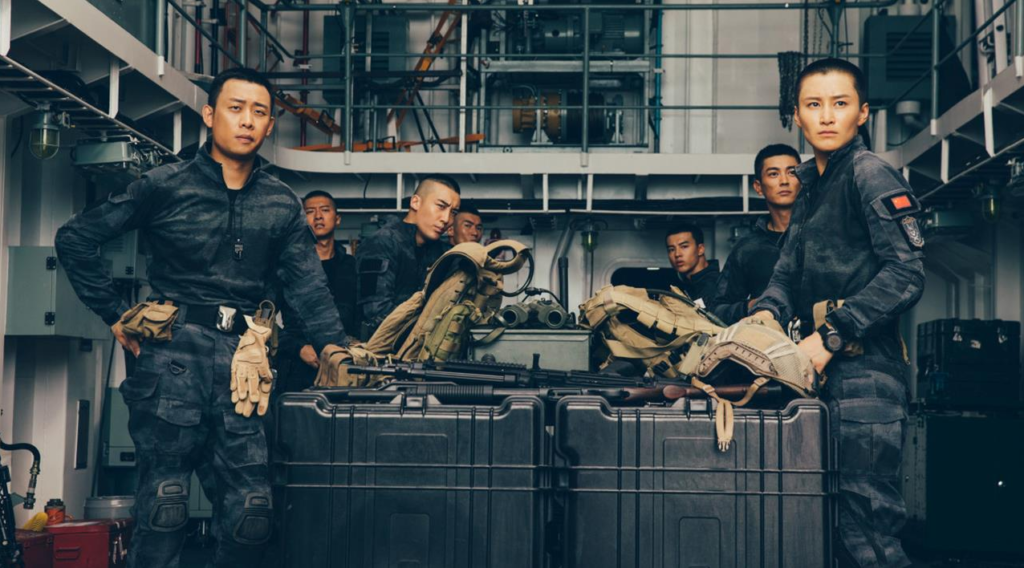
Several thematic bits stick out:
Respect of national territory, implied, with a possible gotcha: At the beginning, despite catching pirates in the act, when one of them flees, the PLA is very careful to catch the leader before he enters Somali territorial waters, or they’d have to turn back. At the very end of the movie, a squadron of ships is converging on a target, blaring over intercoms that their target is entering Chinese territorial waters, and needs to turn back immediately.
Of course, there’s some disagreement of over what territory actually is Chinese, and they have certainly expanded the lands their people are in, to the point of building artificial islands which of course justify even broader territorial water claims. There’s also their practice of taking over and infiltrating business and property holdings in North America. Nevertheless, the high level message here is “We’ll stay out of your shit of you stay out of ours. If you stick your nose in where it doesn’t belong, it will get blown off.”
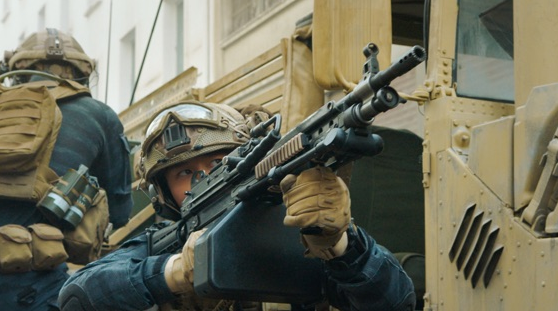
Use of NATO gear: For whatever reason, fig leafed as “limited ammo supplies for sustained fighting” on board, the team uses NATO – compatible weapons and ammo ashore. This included at least one SAW, Humvees, and so forth. Given they used their standard bullpup rifles in the shipboard fight, it may simply be following actual events, or may be a desire to use gear more familiar with worldwide audiences so that they could show off the competence of the commandos.
Political Officers: The PLA Navy still has them.
Gee-Whiz tech: The CIWZ-style anti-missile defence system may not work as well as advertised, but showing off how it’s supposed to work, effectively defending a ship stuck at anchor is reinforcing the desired impression of “we’re capable of fucking with you, don’t fuck with us.” There were a couple through-wall thermal scanners, and one remote/fiber optic camera bomb disarming/camera tool that I can’t state don’t exist – I know tools close to that are available, or will be soon. There was also a single-use explosive antipersonell drone.

We will be there for our people: At the end of the movie, along with the ships blaring to turn back from Chinese waters, is a note that anywhere in the world, a Chinese citizen can enter an emergency phone code and be put in touch with the nearest consulate. It’s also used at a point in the movie by a reporter who informs the ship and team of the additional group of hostages.
To wrap it up – yes, it is blatant propaganda intended not only for Chinese audiences but as a message to the rest of the world. And it was still a better, more sincere, and more overtly patriotic movie that we’d see out of Hollywood as a matter of course. Not only that, but with it produced in concert with the PLA, and released with permission and oversight by the government, it’s obvious that it’s a message to the world of intent and attitude on the part of the Chinese Government.
